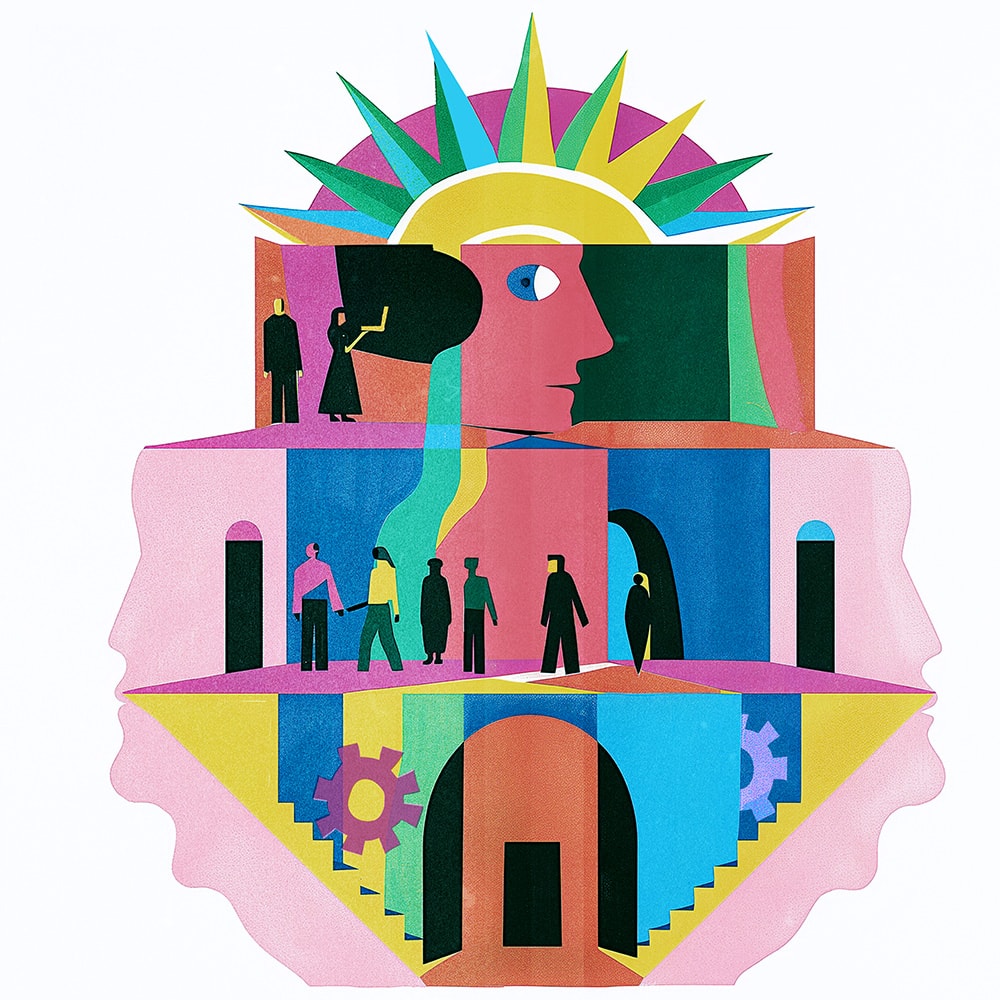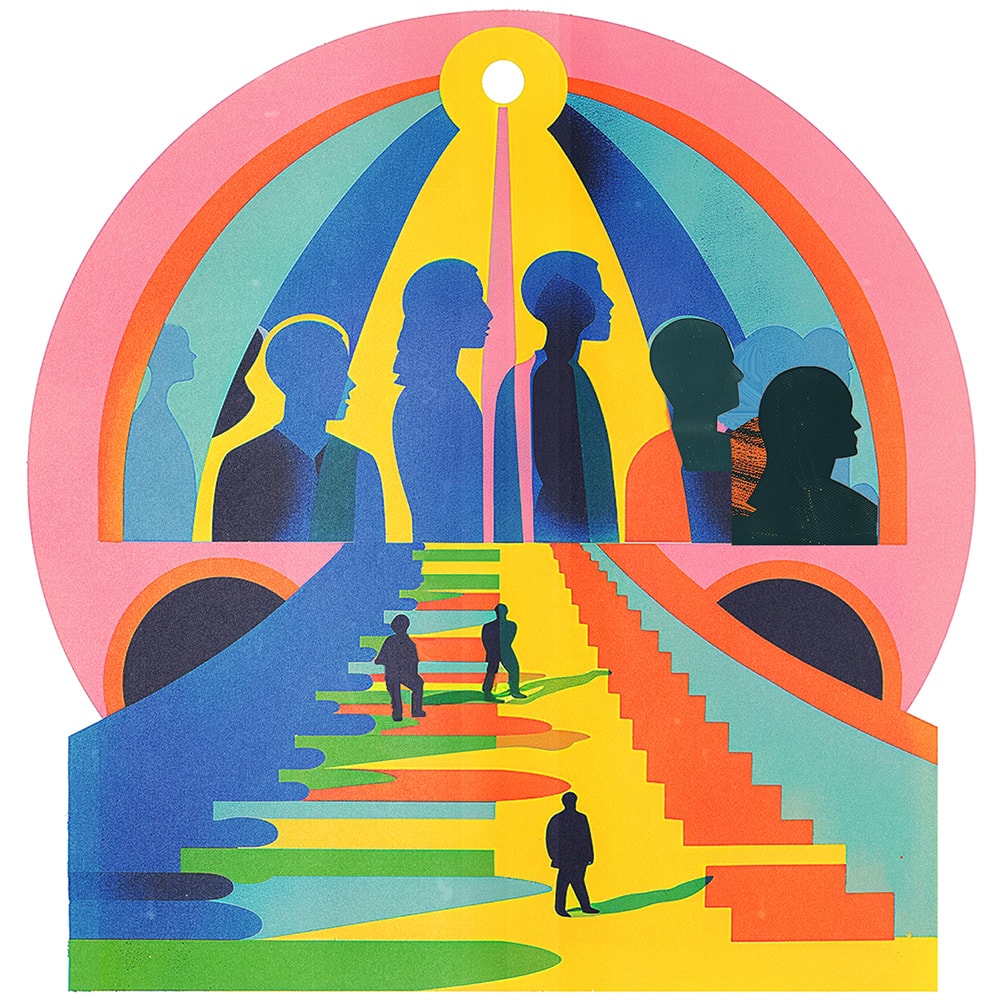How can a theatre thrive while also helping its community grow? At Out of Hand Theater, we have landed on a business model that has quadrupled our revenue since 2018 while moving our neighbors to action on important issues and elevating the role of theatre in our community. It has been a win for art, a win for business, and a win for our community. I share it in the hopes that other theatres can benefit from this business model in these difficult times.
Listed among The New York Times Best Theater of 2020, Out of Hand works at the intersection of art, social justice, and civic engagement. We use the tools of theatre with the aim of creating a more just world through programs that bring together scripted theatre with information and conversation. Since 2001, we have collaborated with dozens of community partners, from the National Center for Civil and Human Rights to the University of Michigan to Coca-Cola, to produce programs that combine art to open hearts, information to open minds, and conversation to inspire action.
All our programs are partnerships with some combination of government agencies, businesses, other nonprofits, and schools. Most of our income comes from fees-for-services contracts with these partners or grants to collaborate with them on free programs. In fact, most of our programs are free to the public. Ticket sales make up less than one-tenth of our revenue, while fees-for-services contracts make up one-third to one-half and collaboration grants make up a quarter to a third of our total revenue. Our fees-for-services clients include government agencies, universities, nonprofits, and corporations. Our collaboration grant partners are usually nonprofits and government agencies.
What do these programs look like? With Shows in Homes, for instance, we pair original one-act plays with cocktail parties and conversations with community partners. Shows in Homes is offered in 30 to 50 living rooms across Metro Atlanta each year; we typically sell tickets to less than half of these performances, with more than half bought out by the hosts. These shows have addressed gun violence with Moms Demand Action, mass incarceration with Georgia Justice Project, and divisive concepts legislation—i.e., laws prohibiting teachers from talking about systemic racism or LGBTQ issues, like Georgia HB 1084: Protect Students First Act, which was recently used to fire a teacher in suburban Atlanta—with the ACLU of Georgia. The only other program we charge audiences for is our Institute for Equity Activism, where we build the capacity of individuals and organizations in arts activism focused on racial equity.
The rest of our programs are free to participants. Our Civic Collaborations include a vaccine confidence program developed with the CDC Foundation and delivered across Georgia with the Department of Public Health; a child sex trafficking prevention program for Georgia middle schools developed with the Georgia Council for the Arts, Department of Education, and two nonprofits; and a project addressing HIV stigma with the CDC and Positive Impact Health Centers. And our Creative Kids project is designed to help close the opportunity gap for Metro Atlanta students of color and students from low-income families by providing 550 free theatre classes to 300 students at six under-resourced schools each year, funded entirely by grants and individual sponsorships.
We measure our success by the extent to which attendees learn something new, are moved, and are inspired to take action on the issue at hand, not solely on artistic quality.
Meanwhile, through Equitable Dinners, we gather thousands of people every year for vital conversations on racial equity and other equity topics over meals, shared after viewing short plays. Equitable Dinners is a collaboration among Out of Hand and the National Center for Civil and Human Rights, the King Center, the Mayor’s Office, and many others. Our annual citywide public Equitable Dinners are funded by grantors including the Arthur Blank Family Foundation and now Bloomberg, but we also provide paid private events for government agencies, including the City of Brookhaven, universities such as Emory and Oglethorpe, nonprofits such as United Way and YMCA, and corporations including Coca-Cola, BlackRock, Audible, Georgia Power, Seyfarth Shaw, Google, Mercedes-Benz, UPS, EY, Bain, Veritiv, and the Arbor Company.
We measure our success by the extent to which attendees learn something new, are moved, and are inspired to take action on the issue at hand, not solely on artistic quality. High-quality programs are necessary for effective and impactful programming, as evidenced by our surveys, which show over 90 percent of respondents respond positively in all three metrics.
Out of Hand’s collaborations have meant that our 23-year-old company has operated with a budget surplus for more than a decade, building cash reserves to maintain at least four months of working capital as our budget grows. Our success can also be measured by the understanding, empathy, and action around social justice, and a cultural shift around anti-racism, they’ve helped to engender. Our collaborations also increase our visibility and elevate the role of art in our community, making theatre a valuable and sought-after tool for advocacy, dialogue, and story-sharing. They help us reach thousands of diverse people each year who do not usually attend theatre, serving our partners’ missions as well as our own. More than 90 percent of our survey respondents also say they feel more connected to others after our events. Out of Hand’s programs increase feelings of connectedness and social cohesion through positive personal interaction with strangers around the subjects that matter most—all of it fueled by theatre.
Theatre is an art form most often driven by artists’ inspiration, but it need not be. As folks from Harvard Business School, who recently published a case study titled “Out of Hand Theater: Monetizing Creativity,” concluded when they brought me in to teach our case study for the first time, theatre is no less theatre if it’s commissioned by a corporation or government agency, just as the Renaissance masterpieces are no less art because they were commissioned by popes and aristocrats.
I would also argue that as nonprofits, our primary responsibility is to serve our communities, not our artists. And we can best serve our communities by addressing the issues that are most important to them, using the tools of storytelling and emotional engagement for the greater good. We can capitalize on the live presence of the audience, something television and increasingly film cannot do, by pairing our art with the social connections we are missing in our increasingly divided and lonely world. Fulfilling former TCG executive director Ben Cameron’s vision of our role as theatre producers being “social orchestrators” for whom performance is a piece, but only a piece, of what we’re called to do.
In short, Out of Hand’s work shows one way to make theatre financially viable while also increasing its community value and serving community needs. While not every theatre could adopt our entire model, I believe there are elements of our success that any theatre company, or any nonprofit arts organization, can learn from and use.
Ariel Fristoe is the artistic director and founder of Out of Hand Theater. She won the Atlanta Women of Influence Award in 2024 and has been named one of Georgia’s Most Influential Leaders. She is a graduate of Leadership Atlanta, and the Atlanta Journal-Constitution named her an “everyday hero.” She teaches arts management at Emory University.
RELATED CONTENT
Support American Theatre: a just and thriving theatre ecology begins with information for all. Please join us in this mission by joining TCG, which entitles you to copies of our quarterly print magazine and helps support a long legacy of quality nonprofit arts journalism.






